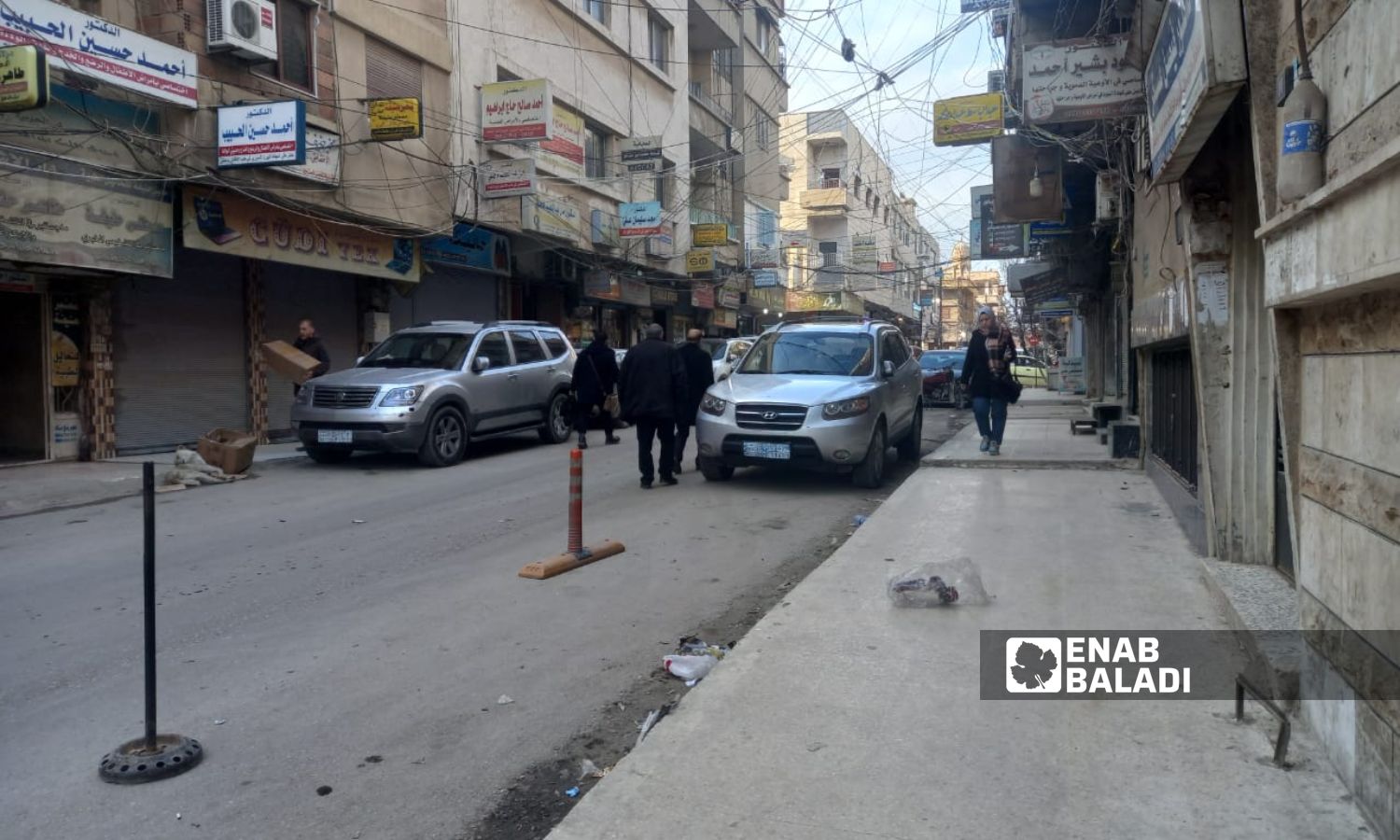



Al-Hasakah – Rita al-Ahmad
The increase in the cost of medical check-ups has added an economic burden on civilians from the residents of al-Hasakah governorate at a time when they are experiencing difficult living conditions similar to various areas of control and influence in Syria.
Medical check-up fees in al-Hasakah have particularly increased significantly, to the extent that some residents refrain from visiting the doctor except in cases of extreme necessity, according to what a number of the governorate’s residents told Enab Baladi.
Shilan Sheikho, 27, resides in the Halko neighborhood in the city of Qamishli, east of al-Hasakah. She has been suffering from continuous head pain for months, as she told Enab Baladi. However, she finds herself forced to use pain relievers to alleviate the pain, rejecting the idea of visiting a doctor due to the high fees for medical check-ups.
Sheikho added that she does not have the financial ability to bear the costs of medical examinations such as MRI or CT scans, as the cost of these medical tests exceeds 150 US dollars where she resides.
Despite the increase in the salaries introduced by the Autonomous Administration of North and East Syria (AANES) and her monthly salary reaching one million Syrian pounds, Sheikho pointed out that her monthly income is not sufficient to cover the necessary medical treatment costs alone, making her unable to visit a doctor.
Sheikho, who works as a classroom teacher in a school in eastern al-Hasakah, said that she depends on a pain reliever medication called “Relief,” which is of Indian origin and costs 10,000 Syrian pounds per box. According to her, it provides a quick solution for pain relief.
Sheikho did not hide her fear of her deteriorating health condition, but the financial difficulties she faced in obtaining medical care led her to ignore these concerns.
The exchange rate of the US dollar surpassed 14,500 Syrian pounds, according to the S-P Today website, which specializes in foreign currency exchange rates.
Hilda Antar, a housewife and a mother of three children from the city of Qamishli, told Enab Baladi that she was directly affected by the increase in medical check-up prices in al-Hasakah governorate. She periodically needs to take her children to the doctor for various reasons, but she is no longer able to do so.
The pediatrician in Qamishli, whom Antar used to take her children to his clinic, suddenly raised the fees for check-ups. As a result, she found herself obliged to pay 60,000 Syrian pounds for a check-up for one of her children after it used to cost 40,000 pounds.
An official in the Health Authority affiliated with the AANES, who preferred not to disclose her name as she is not authorized to speak to the media, told Enab Baladi that it is difficult to impose restrictive laws on doctors who own private clinics, especially regarding the fees for medical check-ups.
She indicated that doctors of various specialties rely on medical devices in their check-ups and examinations, which cost thousands of dollars.
Despite the increase in the cost of medical check-ups by doctors, the economic crisis affects the living standards of citizens, according to the official in the Health Authority. She pointed out that the Autonomous Administration has opened many medical projects, such as “Al-Shaab” clinics (dispensaries) with various departments and specialties.
She added that the Administration has also opened “Al-Shaab” hospitals (a national hospital), as well as other specialized hospitals such as the Heart and Eye Hospital, the COVID-19 Hospital, and the Kidney Dialysis Center, with the aim of providing medical services at reasonable or completely free prices.
The private hospitals, which number six in the area controlled by the AANES, exploit the lack of organized oversight over the private medical sector, allowing them to impose high fees and costs that exceed the ability of the residents.
The average cost of check-ups in the pediatrics department in these hospitals is about 60,000 Syrian pounds.
Some cities and villages in the al-Hasakah governorate are outside the areas covered by humanitarian and medical organizations, while the activities of some of these organizations are limited to providing types of medications and simple medical services.
if you think the article contain wrong information or you have additional details Send Correction